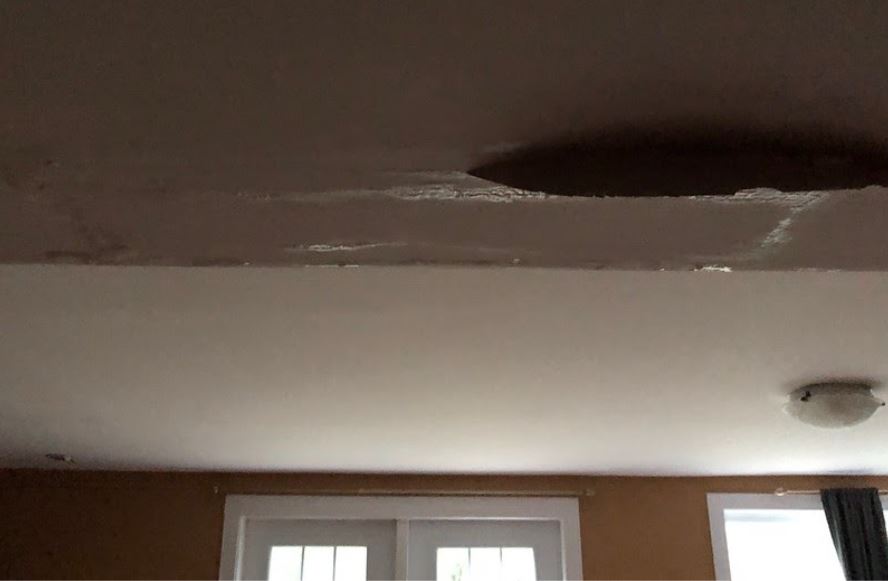Mastering the Six Most Common Water Leaks: Tips for Homeowners
Mastering the Six Most Common Water Leaks: Tips for Homeowners
Blog Article
Everyone seems to have their own individual piece of advice about Most Common Causes of Leaky Pipes.

Leakages not only create waste of water but can likewise cause unneeded damage to your home as well as promote unwanted organic development. Regrettably, water leaks could go unnoticed since a lot of the pipework in our residence is hidden. By looking as well as recognizing for day-to-day circumstances that trigger leaks, you can shield your house from future leaks and also unneeded damages. Today, we will check out six leakage triggers that may be causing your pipes to drip.
Encroaching roots
Many water leaks begin outside your home as opposed to inside it. If you observe a sudden decline in water pressure, say in your faucet, require time to go out as well as analyze your backyard. You may notice damp patches or sinkholes in your yard, which may indicate that tree roots are attacking water lines causing water to leak out. You can have your plumber look for breach, especially if you have trees or hedges near your residential or commercial property.
Rusty water supply
As time goes by, your plumbing system ages and also deterioration such as rust may start gnawing the pipes. This may be the source of discoloration or bending on your water pipes. This requires an inspection with your plumber promptly. Think about replacing the pipelines since they are at a higher danger of rust than the more recent versions if our plumbing system is old.
Malfunctioning Pipeline Joints
Pipe joints can deteriorate over time, resulting in water leaks. If you have loud pipes that make ticking or banging noises, specifically when the warm water is transformed on, your pipeline joints are probably under a whole lot of stress.
Immediate temperature modifications.
Severe temperature level modifications in our pipes can cause them to expand and also get suddenly. This development as well as contraction may create fractures in the pipes, especially if the temperature level are below freezing. It would be best if you kept an eye on how your plumbing works. The visibility of the formerly discussed situations frequently shows a high danger.
Poor Water Connectors
Sometimes, a leak can be brought on by loose tubes as well as pipes that provide your home appliances. Generally, shifting is what triggers the loose water Connections. You could locate in the case of a cleaning machine, a tube may spring a leakage due to trembling during the spin cycle. In case of a water links leak, you might notice water running directly from the supply line or pools around your devices.
Obstructed Drains
Clogged drains pipes might be irritating and inconveniencing, however they can in some cases wind up causing an overflow bring about rupture pipes. Keep getting rid of any products that might go down your drains that can clog them to avoid such troubles.
All the above are reasons for leaks yet not all water leaks result from plumbing leaks; some leakages could come from roofing leaks. All leaks must be fixed instantly to prevent water damages.
Leaks not only trigger waste of water however can likewise create unneeded damages to your home as well as advertise undesirable natural development. By recognizing and also looking for day-to-day situations that cause leaks, you can shield your home from future leakages as well as unneeded damage. Today, we will certainly look at 6 leak causes that may be triggering your pipelines to drip.
At times, a leak can be caused by loose hoses and pipes that provide your home appliances. In situation of a water links leakage, you might notice water running directly from the supply line or puddles around your appliances.
How To Check For Water Leak In Your Home
How To Check for Leaks
The average household's leaks can account for nearly 10,000 gallons of water wasted every year and ten percent of homes have leaks that waste 90 gallons or more per day. Common types of leaks found in the home are worn toilet flappers, dripping faucets, and other leaking valves. These types of leaks are often easy to fix, requiring only a few tools and hardware that can pay for themselves in water savings. Fixing easily corrected household water leaks can save homeowners about 10 percent on their water bills.
To check for leaks in your home, you first need to determine whether you're wasting water and then identify the source of the leak. Here are some tips for finding leaks:
Take a look at your water usage during a colder month, such as January or February. If a family of four exceeds 12,000 gallons per month, there are serious leaks.
Check your water meter before and after a two-hour period when no water is being used. If the meter changes at all, you probably have a leak.
Identify toilet leaks by placing a drop of food coloring in the toilet tank. If any color shows up in the bowl after 10 minutes, you have a leak. (Be sure to flush immediately after the experiment to avoid staining the tank.)
Examine faucet gaskets and pipe fittings for any water on the outside of the pipe to check for surface leaks.
Undetected water leaks can happen without the home or business owner even realizing. If you suspect a water leak, but not able to find the source. It is time to contact a professional water leak detection service, The Leak Doctor.
How To Find a Water Leak In Your Home
https://www.leakdoctor.com/blog/How-To-Check-For-Water-Leak-In-Your-Home_AE197.html

As a fervent reader about How Fast Water Damage Can Ruin Your Home, I thought sharing that editorial was a smart idea. Those who enjoyed our blog posting please remember to pass it around. I appreciate reading our article about How Fast Water Damage Can Ruin Your Home.
Schedule Your Service Report this page